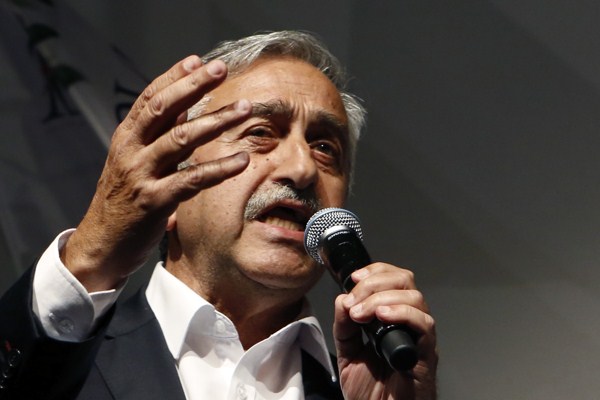Mustafa Akinci was sworn in as president of northern Cyprus yesterday, after overwhelmingly defeating right-wing incumbent President Dervis Eroglu, 60.5 percent to 40.5 percent, in Sunday’s election. Though Eroglu, who has been in office since 2010, had just barely finished atop the first-round voting a week before, the leftist Akinci and the two other leading candidates, who all focused their campaigns on change and cleaner politics, together received 70 percent of the vote. The second round became, in effect, a referendum between those content with the conservative status quo, including a hard line in peace talks on Cyprus’ reunification, and those who support change in the form of a bi-zonal, bi-communal federation for Cyprus, with two communities in two zones united by a shared government, as well as clean politics and good governance.
With his pledge to reach an agreement on reunifying Cyprus, Akinci represents a major shift in politics in northern Cyprus, which since the second half of the 1970s has been governed by right-wing parties that have generally opposed Cyprus’ reunification and instead advocated for an independent northern state. As a result, the Turkish Cypriot community has long been perceived as the intransigent side in Cyprus peace negotiations in the eyes of the international community, even though 65 percent of Turkish Cypriots approved a 2004 referendum on a United Nations reunification plan, as opposed to just 24 percent of Greek Cypriots.
The perception of Turkish Cypriot intransigence has also overlooked a more complex picture in northern Cyprus, where many Turkish Cypriots bemoan the extreme partisanship and nepotism of their governments. Making things worse, Eroglu’s government, like those of his predecessors, has been overly submissive to Turkey, the only country that recognizes northern Cyprus. For most Turkish Cypriots, continued Turkish meddling in their domestic affairs is a point of contention that has hardly gone unnoticed, even if Eroglu and his predecessors thought otherwise. All these factors account for a frustrated “silent majority” in northern Cyprus that largely directed its fury against Eroglu, a long-time stalwart of the National Unity Party (NUP). Before becoming president, Eroglu was the prime minister of NUP governments for 18 years and a firm nationalist.

